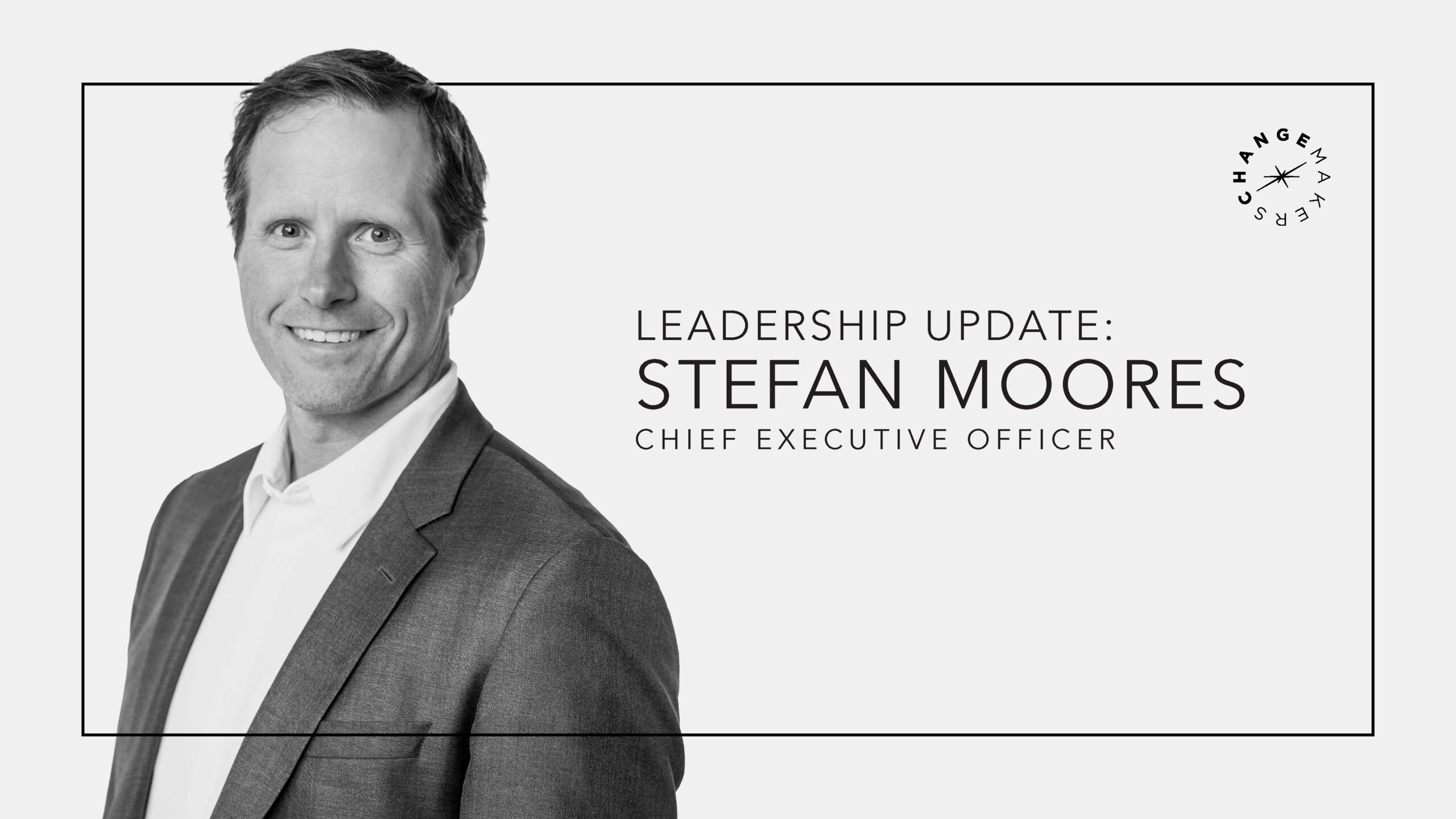Are you ready for the next crisis?

In our rapidly shaping and shifting world, there is nothing more important than strong leadership. An organization can get along without it in a status quo environment – but the moment crisis rears its head, leaders are needed. Leaders who project strength, communicate clearly and show empathy.
There’s one thing we can be sure of in volatile times: it’s not a question of “if” the next crisis will come, it’s “when”. So, building competency in crisis communications should be a priority for every company and every leader.
Understanding crisis communications management
Crisis was once a term reserved for headline-grabbing events such as oil spills, plane crashes, large corporate scandals or major economic volatility. But in today’s deeply interconnected world, information is available to many different audiences, each with their own priorities. This means something that was previously a minor issue – only of interest to people inside or close to a company – can now be disseminated worldwide in an instant, finding that audience to whom it matters most. A small slipup can impact a company’s reputation and do lasting damage, sometimes more than a major event. Accounting mistakes, social justice issues, supply chain disruptions, privacy and cybersecurity, geopolitical events and workplace dynamics are just a few issues leaders need to navigate today. And they must navigate very quickly and very publicly.
Key elements of crisis communications and management
At ChangeMakers, we focus on five key elements that leaders need in a crisis:
Vision: Communicating a clear and compelling vision for your organization. Your stakeholders – the public, employees, shareholders – need to know your continued purpose and motivation regardless of the circumstances.
Agility: Adapting quickly to ever-changing circumstances and making decisions based on incomplete or uncertain information and communicating well.
Empathy: Showing an understanding of the lived experience and responding to the needs of your employees, customers and other stakeholders. Empathy and compassion should be visible in all communication.
Resilience: Demonstrating you can manage these setbacks and maintain a composed and calm demeanour throughout, while supporting others through transparent and open communication.
Collaboration: Working quickly to use your networks to find solutions to complex situations.
With so much at risk, more should be done to prepare.
A recent poll of executives* who’ve experienced crisis events shows that:
- 38% had not anticipated the risk.
- 24% anticipated the risk but weren’t prepared.
- 64% reported the crisis set their company back financially.
- 35% reported it impacted their ability to retain and recruit talent.
Clearly, more can and should be done to prepare leaders for a crisis – before it hits. Though we can’t know specifics of tomorrow’s crises, we can strengthen our vision, agility, empathy, resilience and collaboration through rigorous and data-informed training.
ChangeMakers Training Academy
The ChangeMakers Training Academy was created to answer this very challenge. We help leaders identify and strengthen the skills needed in crisis… skills that enhance and protect your reputation and maintain and build trust throughout any crisis.
We will help you prepare for any situation through:
- Risk audits
- Rigorous simulations
- Understanding your stakeholders and issues
- Data-driven tools focused on protecting, promoting and evolving your reputation
- Communicating with empathy and transparency
Reputation capital matters more than ever. ChangeMakers Training Academy prepares leaders and their teams to step up when it matters most. Change is always coming – don’t wait for it to tap you on the shoulder. Be prepared to face it with readiness and determination.
Forget the Deliverables. Drive Business Outcomes.

Across industries, transformation is constant. If you’re not evolving, you may be left behind. But the difference between success and failure isn’t simply who adapts fastest or the most. Those who will emerge as leaders in today’s business environment will be those who embrace and drive change best.
That’s why communications teams can no longer afford to sit at the end of the decision chain to receive and act on a mandate—they must be present at the decision-making table, shoulder-to-shoulder with the C-suite. The communications function is capable of more than storytelling, media, and advertising if you allow it.
At ChangeMakers, we demand it.
Co-architect Business Strategies
For too long, communications has been the messenger—not a co-architect—of business strategy. The result is often reactive campaigns, fragmented programs, or missed opportunities.
We’ve entered an era that requires communicators to understand – and are given visibility into – the entirety of an organization and business context before executing on a task. Communications deliverables are a means to the end.
To achieve business outcomes, communications must be at the core. Whether advising on organizational design, reputation risk, or stakeholder trust, engagement must be strategic, intentional, and continuous. Otherwise leaders will fail to build the trust required to execute successfully.
That’s why our role at ChangeMakers extends beyond “telling the story” to building the systems and approaches that make stories credible. We’re helping set direction, identifying roadblocks, and supporting organizational changes to meet and exceed expectations. This requires effective integration—across disciplines, crafts, and technologies, both internally and externally.
Leverage Communications as a Partner
Immeasurable strength comes from integrating the entire communications landscape — from marketing and brand strategy to crisis management, organizational change, and social-impact advisory. Our excellence across this diverse skill set gives us an unmatched perspective that informs our approach to every business challenge.
Communications can lead the next decade of organizational transformation. Doing so will require courage to collapse silos, to rethink traditional models, to show up in boardrooms armed not only with creative ideas, but with data, foresight, and strategic authority.
For CEOs, boards, and senior leaders, strategic communications must be viewed as a key driver in every plan to achieve business outcomes. It’s the force multiplier — aligning people on the why, increasing adoption and execution, protecting reputation, and unlocking growth. Whether you’re introducing AI, repositioning a brand, driving rapid growth, responding to a crisis or reputational risk, or delivering social impact at scale, success depends on your ability to bring people with you – and communications is the catalyst for success.
Use Technology and AI as a Catalyst
People across every organization are using some form of AI – whether it’s endorsed or not. At its best, AI offers a promise of net new solutions, efficiency, cost reduction and automation. Executed inconsistently, it risks eroding trust and value among stakeholders that matter most.
The most effective transformations pair data intelligence with human expertise — the ability to listen, interpret, give and take, and adjust. At ChangeMakers, we leverage technology to provide data and insight so our teams can focus on strategic counsel: shaping messages that move markets, align employees, or attract investors.
AI is embedded in how we analyze sentiment, forecast risk, and measure impact. It helps us measure what was previously immeasurable. Our Reputation Score can quantify your reputation, analyze how competitors compare, predict reputational risk, and identify avenues for future growth.
In another case, we’re going beyond talking with clients about how AI-powered tools like ChatGPT, Gemini, and Google’s AI Overviews change the way people find information. We’re proactively workshopping content strategies and messages that resonate across audiences and organizational contexts, and are structured so AI tools can find, understand, trust, and quote them.
No one person can keep up with the pace of change set by AI and technology. It requires partnership with a trusted advisor who can help you set the path and filter what’s valuable amidst the noise.
Learn How to Do Change Well
The pace of change today—technological, societal, regulatory—can feel overwhelming. Change is hard. And can be exhausting. Especially when poorly managed.
Organizations with strong change management deliver 264% more revenue growth than those that don’t. What does “strong change management” mean? Following a change management methodology is not enough. Leaders must leverage their strategic communications team to take organizational change beyond process and protocols to embed lasting shifts in culture, performance, and resilience that maximize success.
When done well, change builds credibility and confidence. When done poorly, it destroys both. Strategic communications is the difference.
At ChangeMakers, that’s our purpose and our promise: to help leaders and their organizations navigate complexity with clarity, integrity, and measurable results.
You can’t stop change. But you can do it well.
ChangeMakers Names Stefan Moores as Chief Executive Officer
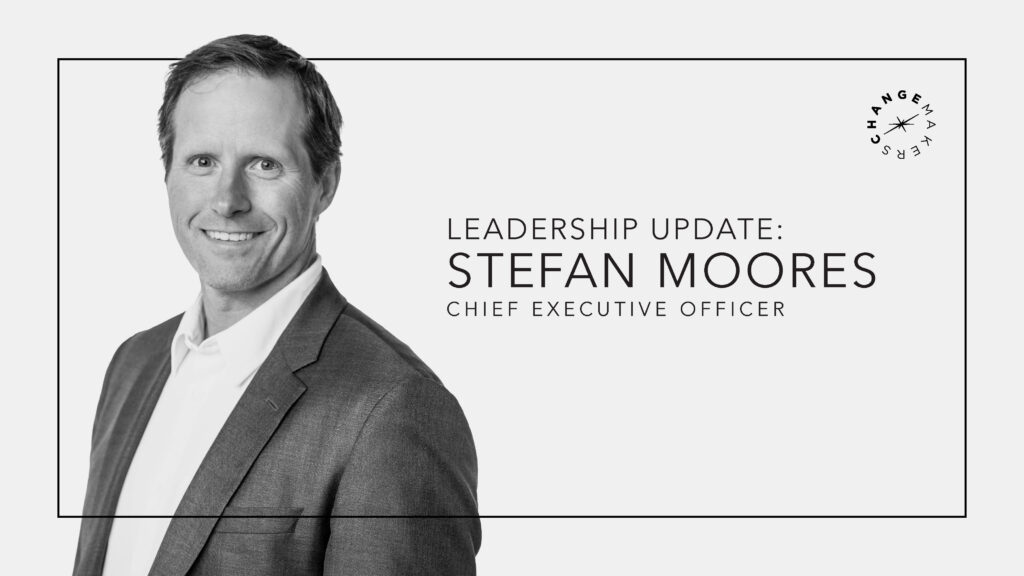
Moores’ appointment signals commitment to innovation, evolution and delivery on client outcomes
ChangeMakers, one of North America’s leading independent strategy and communications firms, announced Stefan Moores as Chief Executive Officer. The appointment reflects the firm’s ongoing evolution to an integrated, AI-native consultancy at the intersection of change, markets, and people.
“Stefan has the business acumen, entrepreneurial spirit and integrity that has earned him the trust of his team. We are energized by his leadership thus far and look forward to all that ChangeMakers will accomplish together under his guidance,” said Dale Tingley, Co-Managing Partner of the Canadian Business Growth Fund (CBGF) and Chair of the Board. “Under his leadership, ChangeMakers is well positioned to make waves in today’s evolving business market.”
“Our aspiration is simple: make ChangeMakers the most trusted partner for organizations and leaders who seek to achieve measurable business outcomes. Whether it’s tangible results like sales or revenue, or the harder to quantify cultural and reputational measures, communications is the engine that powers progress,” said Moores. “We will be on the cutting edge of AI, technology and innovation while keeping our focus on the human-centered relationships that build trust, drive results, and enhance reputation. That’s how we will deliver value every day.”
Moores’ vision for the company centers around the drive to positively impact every client’s business, from strategic planning through organizational change management and market execution. Whether navigating executive leadership changes and cultural challenges, or driving awareness and sales, ChangeMakers is the strategic partner that helps leaders execute well and move confidently.
“Whether change is the chosen path, or takes our clients by surprise, our role at ChangeMakers is to turn it into a strategic advantage,” said Moores. “We see massive opportunity in leveraging our expertise in crisis and risk management, organizational change management, public relations, marketing and social impact to change the way companies think about, execute and capitalize on change. We do that by applying all our different crafts with technology and human expertise to move with confidence.”
Moores is uniquely positioned to take ChangeMakers into the future. He brings decades of experience in business management, human resources, finance, investment and operations at leading management consulting, communications and public affairs firms across Canada and the U.S. Most recently, Moores served as Chief Operating Officer for ChangeMakers. He also previously served as President of Argyle and co-founder of The Castlemain Group. Moores holds an MBA from Stanford University Graduate School of Business, an MSC in International Politics, Economics and Business from The London School of Economics and Political Science, and a BA in Economics from Queen’s University.
“The next era of communications belongs to the doers — those who don’t ask if change can or will happen, but how to make it work. That’s the mindset we’re building at ChangeMakers,” added Moores.
ChangeMakers’ independence and cross-sector expertise allow it to deliver outcomes—not just activity—for the C-suite, senior leadership and the teams they lead. With more than 400 professionals across 10 North American offices, the firm offers end-to-end, sector-shaped solutions that help clients thrive through disruption and emerge stronger.
Forget the Deliverables. Drive Business Outcomes.

Across industries, transformation is constant. If you’re not evolving, you may be left behind. But the difference between success and failure isn’t simply who adapts fastest or the most. Those who will emerge as leaders in today’s business environment will be those who embrace and drive change best.
That’s why communications teams can no longer afford to sit at the end of the decision chain to receive and act on a mandate—they must be present at the decision-making table, shoulder-to-shoulder with the C-suite. The communications function is capable of more than storytelling, media, and advertising if you allow it.
At ChangeMakers, we demand it.
Co-architect Business Strategies
For too long, communications has been the messenger—not a co-architect—of business strategy. The result is often reactive campaigns, fragmented programs, or missed opportunities.
We’ve entered an era that requires communicators to understand – and are given visibility into – the entirety of an organization and business context before executing on a task. Communications deliverables are a means to the end.
To achieve business outcomes, communications must be at the core. Whether advising on organizational design, reputation risk, or stakeholder trust, engagement must be strategic, intentional, and continuous. Otherwise leaders will fail to build the trust required to execute successfully.
That’s why our role at ChangeMakers extends beyond “telling the story” to building the systems and approaches that make stories credible. We’re helping set direction, identifying roadblocks, and supporting organizational changes to meet and exceed expectations. This requires effective integration—across disciplines, crafts, and technologies, both internally and externally.
Leverage Communications as a Partner
Immeasurable strength comes from integrating the entire communications landscape — from marketing and brand strategy to crisis management, organizational change, and social-impact advisory. Our excellence across this diverse skill set gives us an unmatched perspective that informs our approach to every business challenge.
Communications can lead the next decade of organizational transformation. Doing so will require courage to collapse silos, to rethink traditional models, to show up in boardrooms armed not only with creative ideas, but with data, foresight, and strategic authority.
For CEOs, boards, and senior leaders, strategic communications must be viewed as a key driver in every plan to achieve business outcomes. It’s the force multiplier — aligning people on the why, increasing adoption and execution, protecting reputation, and unlocking growth. Whether you’re introducing AI, repositioning a brand, driving rapid growth, responding to a crisis or reputational risk, or delivering social impact at scale, success depends on your ability to bring people with you – and communications is the catalyst for success.
Use Technology and AI as a Catalyst
People across every organization are using some form of AI – whether it’s endorsed or not. At its best, AI offers a promise of net new solutions, efficiency, cost reduction and automation. Executed inconsistently, it risks eroding trust and value among stakeholders that matter most.
The most effective transformations pair data intelligence with human expertise — the ability to listen, interpret, give and take, and adjust. At ChangeMakers, we leverage technology to provide data and insight so our teams can focus on strategic counsel: shaping messages that move markets, align employees, or attract investors.
AI is embedded in how we analyze sentiment, forecast risk, and measure impact. It helps us measure what was previously immeasurable. Our Reputation Score can quantify your reputation, analyze how competitors compare, predict reputational risk, and identify avenues for future growth.
In another case, we’re going beyond talking with clients about how AI-powered tools like ChatGPT, Gemini, and Google’s AI Overviews change the way people find information. We’re proactively workshopping content strategies and messages that resonate across audiences and organizational contexts, and are structured so AI tools can find, understand, trust, and quote them.
No one person can keep up with the pace of change set by AI and technology. It requires partnership with a trusted advisor who can help you set the path and filter what’s valuable amidst the noise.
Learn How to Do Change Well
The pace of change today—technological, societal, regulatory—can feel overwhelming. Change is hard. And can be exhausting. Especially when poorly managed.
Organizations with strong change management deliver 264% more revenue growth than those that don’t. What does “strong change management” mean? Following a change management methodology is not enough. Leaders must leverage their strategic communications team to take organizational change beyond process and protocols to embed lasting shifts in culture, performance, and resilience that maximize success.
When done well, change builds credibility and confidence. When done poorly, it destroys both. Strategic communications is the difference.
At ChangeMakers, that’s our purpose and our promise: to help leaders and their organizations navigate complexity with clarity, integrity, and measurable results.
You can’t stop change. But you can do it well.
Can AI Save our Hospitals?

The future of AI in healthcare will be shaped by leaders who see trust as the foundation of adoption.
America’s hospitals are running out of time. Staffing shortages are closing clinics, emergency rooms are over capacity, and clinicians are leaving faster than new ones can be trained. Burnout, backlogs, and budget shortfalls are eroding the foundation of care. The system is strained and signaling the need for urgent change and decisive leadership.
At the same time, artificial intelligence (AI) tools are advancing quickly, promising to automate documentation, predict risk, and personalize treatment. Hospitals stand to reclaim thousands of clinician hours each year, reduce administrative costs, and ease burnout, improving access and efficiency across the system.
The American Medical Association has already warned that adoption could stall if hospitals fail to address clinician and patient concerns. Without thoughtful rollouts that build genuine trust, even the best technology may fall short, leaving significant investments with little real-world impact.
Hospital leaders can’t afford to miss — or mishandle — this moment. Smart organizational change management will determine whether we succeed with one of healthcare’s most transformative opportunities in a generation.
Here are three strategies to launch AI transformations that deliver lasting impact:
1. Build Buy-In: Start with the “Why”
Before we ask patients and clinicians to adopt AI, we must answer why the change should matter to them. Talk about AI tools in terms of human outcomes that benefit the users, like more face-to-face time with providers and less burnout for clinician, rather than in business terms like “efficiency” or “innovation.”
For example: “We know how frustrating it can be when clinicians spend visits typing into a laptop instead of fully engaging with you. We envision a future where conversations are face-to-face, uninterrupted, and centered on your needs. That future is possible with the help of our new AI-powered documentation tool.”
Patients and healthcare professionals need to see that these technologies bring time back to them to help them achieve their goals. If healthcare leaders fail to demonstrate that purpose clearly and repeatedly, adoption will remain half-hearted.
Actions: Align the rollout of AI tools with end-users’ values and goals. Every staff meeting, town hall, and newsletter should connect technology to purpose.
2. Understand and Act on Concerns and Risks
AI in healthcare evokes legitimate fears — of inaccuracy, data sharing without consent, and the loss of human connection. These concerns are shared by both clinicians and patients. Ignoring them, or labeling skeptics as “resistant to change,” only guarantees greater resistance.
Clinicians don’t inherently reject technology, rather they question anything that might compromise patient care. Patients are no different; they want the best outcomes possible and are protective of their privacy. These concerns are indicators of where trust must be earned, and leaders who name fears early can shape the narrative before it shapes the AI initiative.
Hospitals must name and address these worries before they metastasize into distrust. Be transparent about what isn’t working today and show how AI tools can relieve those pain points. Create open forums for clinicians and patients to raise questions, and publish clear, honest answers. Treat skepticism as data revealing where design improvements, education, reassurance are needed most.
Actions: Build structured channels for feedback during pilot phases and early rollouts. Make it visible that concerns are understood and lead to change. Transparency is the currency of trust.
3. Don’t Rush: Build for Real Adoption
The biggest mistake leaders make is treating AI implementation as a checkbox. Real transformation takes time to test, adjust, and rebuild workflows.
It’s no different than inviting nurses, physicians and surgeons to test a new operating room layout before it is built into a new hospital. Hospitals must plan for adaptive rollout with visible iteration. Invite early adopters to become change champions by testing the technology, informing instruction and rollout, and sharing watchouts. The goal is sustainable progress. When patients and clinicians see that leadership is listening and adjusting, they engage with curiosity instead of compliance.
Action: Budget for iteration. Measure success by improved satisfaction, reduced burnout, and visible workflow efficiency.
The Moment Is Now
AI has the power to give patients and clinicians back their most precious resource: time. But that future depends on decisions made today. If leaders don’t invest as deeply in building trust as they do in technology, the promise of AI will stall in the waiting room.
It’s time for leaders to stop asking “Is the technology ready?” and start asking “Are our people ready?”
Supporting a top children’s hospital as they navigate critical social, legal, political, and financial headwinds
ChangeMakers has supported a children’s hospital through its most difficult moments, including a lawsuit, financial headwinds, and political turbulence. In a time of increasing complexity, our counsel has guided the hospital through its most difficult crises and helped it emerge with greater purpose and resilience among the stakeholders that matter most to the hospital.
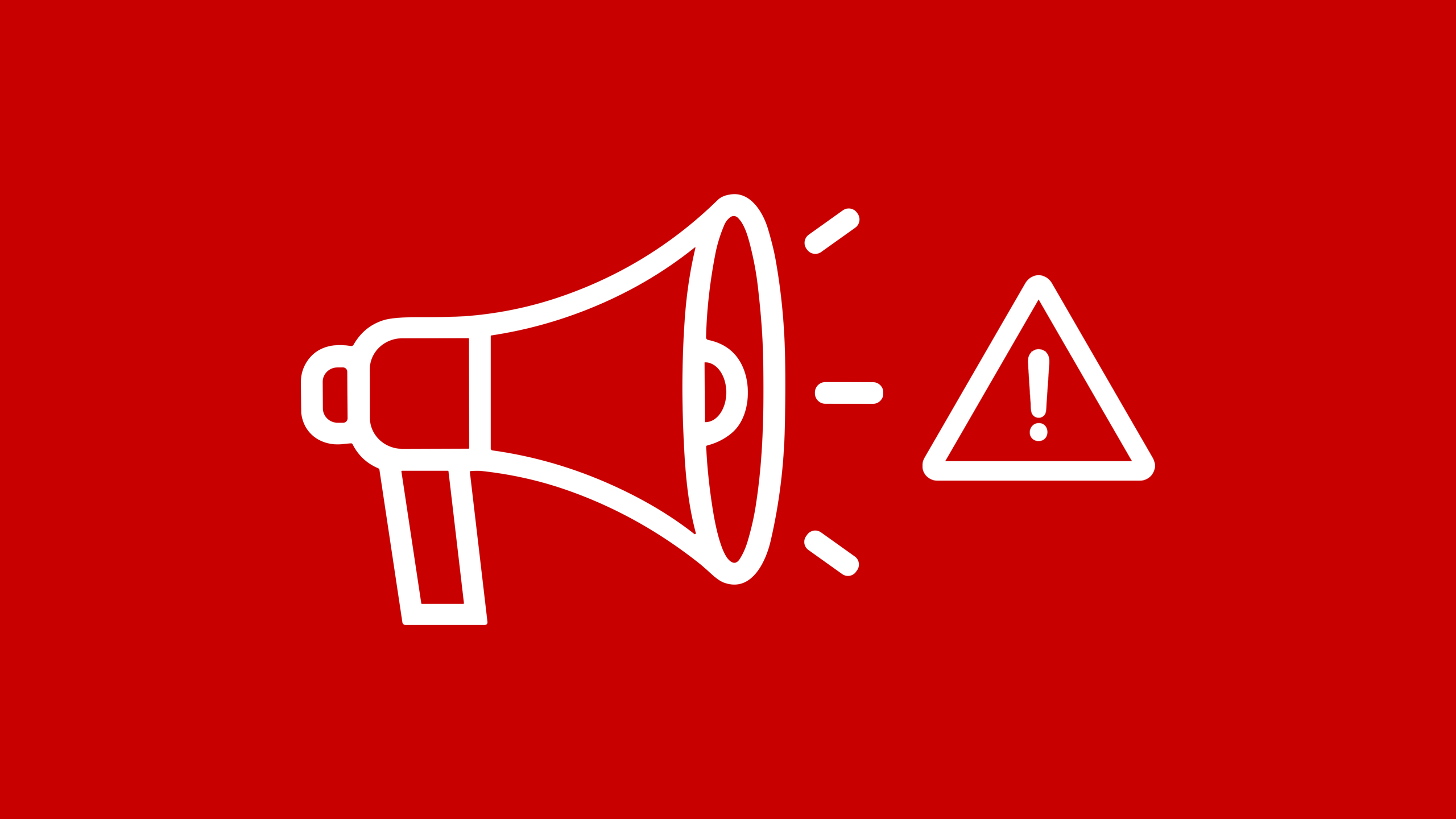
Challenge
Based in the Northeastern United States, this children’s hospital found itself named in a lawsuit related to gender-affirming care at a time of increasing disdain toward the practice.
The entrance of the Trump administration brought an onslaught of compliance challenges that required tactful communications to a variety of stakeholders.
Additionally, as doctor-patient relationships are complex in an increasing digital and social media-based environment, employees needed a better understanding of the hospital’s social media policy.
Insight
Detractors, both for this issue and more broadly, often plan coordinated social media attacks, amplifying one another’s posts. With the help of ChangeMakers’ data-based counsel, detractors tend to fail – without intervention from those in power – to tarnish a hospital’s reputation among the audiences that matter most: local patients and their families.
Execution
ChangeMakers provides expert counsel to all facets of the client team, providing support beyond the C-Suite and communications teams with speed and agility. ChangeMakers crafts communications for varying stakeholders to guide the hospital through significant social, regulatory, political, and legal challenges.
To align the hospital’s employees on proper social media usage, ChangeMakers produced a series of social media training modules in the form of a written script and animated video. With a professional feel, hospital employees gained a clear understanding of what is and is not permissible in a world consumed by social media use.
Results
ChangeMakers’ advisement and intervention has supported the hospital through critical reputational risks, allowing it to remain ranked in the U.S. News and World Report’s top ten honor roll for several consecutive years. Our crisis planning materials and proactive work limited unwelcome media coverage, disrupted detractors, and created alignment for employees on social media at work.
Managing Reputation Score© with Higher Education
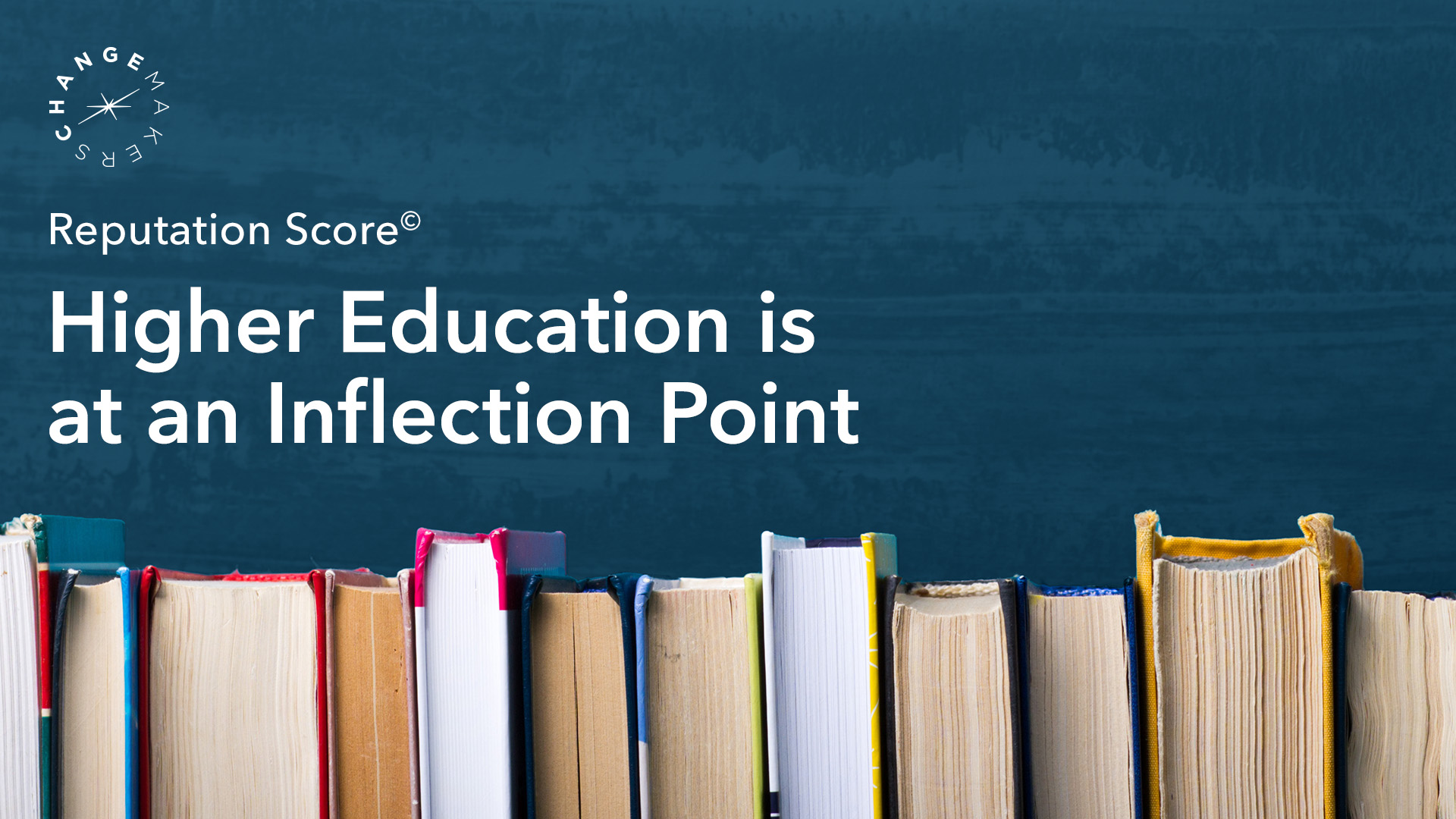
As enrollment season concludes, colleges and universities are getting clarity on whether they met matriculation goals for their incoming class. While individual enrollment decisions are deeply personal for each student, combined they offer one of many measures of success for the institution: did we meet our targets?
This year, the season feels especially tumultuous as students, families, faculties and staff watch the higher-ed sector grapple with an evolving landscape and growing list of challenges. From the pressures of a complex financial landscape and a looming enrollment cliff to the increasing politicization of education and threats of federal and state funding cuts, colleges and universities across North America face significant volatility and a resulting crisis of confidence about their future.
More than ever, reputation is the make-or-break factor influencing decision-making for both students and parents. It is the proxy for perceived quality, value, and opportunity, not to mention a reflection of how cultural dynamics on campuses are impacting perceptions.
To adequately prepare and respond to the new reality that Higher Ed faces, it is critical to not only understand the threats, but to implement a reputation measurement program that simultaneously gauges the health of your reputation, and offers actionable insight based on peers who have already publicly responded to threats to funding for vital research and academic programs, as well as academic freedom.
Understanding – and influencing – the drivers of reputation
To better understand the how recent challenges are impacting institutions across the sector, our ChangeMakers Data Intelligence team applied our proprietary Reputation Score – a dynamic metric, fueled by multiple publicly available data sources and calculated by a fully proprietary. This is a multi-stakeholder, 360-degree assessment designed to complement traditional brand research — offering a broader view of perceptions that may impact the university’s overall institutional health.
While many Ivy League and leading private research universities saw a drop in their reputation since January 2025, just one in our sample set improved since election day, led by a strong response and continued authentic messaging from the school’s President.
The road ahead poses undeniable reputational risks. Here’s how to stay ahead:
- Learn the tendencies of Higher Ed “detractors” who are laser-focused on changing the sector and are influencing administration policy. Understand their tactics and how they are typically executed. There’s a known playbook – study it and prepare for when you are the target.
- Prepare for the known – and pressure test the response. Learn from peers. Be prepared to engage – with lawmakers and federal agencies, in the courtroom, on campus, through the media and everywhere in between. Affirm now what you still stand for, and if and where you are willing to make concessions that preserve the integrity of your institutional mission.
- Get data to work harder for you. Measure real-time reputational health on an ongoing basis to inform efficient decision-making processes and demonstrate the true value communications delivers for the university.
- Enact a strategy to fortify your reputation for the long-term. Preparing properly will ensure your institution is protected, while avoiding wasted energy that distracts from other important work.
Contact us for more information about how your organization stacks up against the competition.
Speaking effectively through targeted engagement
An identity verification provider faced a halt in business operations after privacy concerns surfaced among customers and governing bodies.

Insight
Privacy and data security may not always be top of mind for average consumers, but the institutions that represent them adhere to strict privacy standards. In a crisis, an organization must speak to multiple audiences, both technical and general, addressing concerns with empathy while educating with clarity.
Approach
ChangeMakers developed and executed a communications campaign targeting decision-makers, technical experts, and the general public – rolled out simultaneously. We engaged each partner independently, allowing the specific concerns of each audience to guide our messaging. This ensured our client communicated effectively to multiple stakeholders, without confusing the non-technical segment of our audience. We also created clear and specific timelines to allow customers to understand the processes our client was undertaking to revamp their verification solutions.
Results
As each audience had their concerns addressed, and the overall impact was contained to a small segment of customers. Within weeks, trust was rebuilt with partners, and new verification solutions were approved. The incident had no long-term negative impact on reputation and in fact strengthened our trust with several key decision makers and partners.
International Communications Veteran Jorge Ortega Joins ChangeMakers USA as Executive Vice President, Client Success
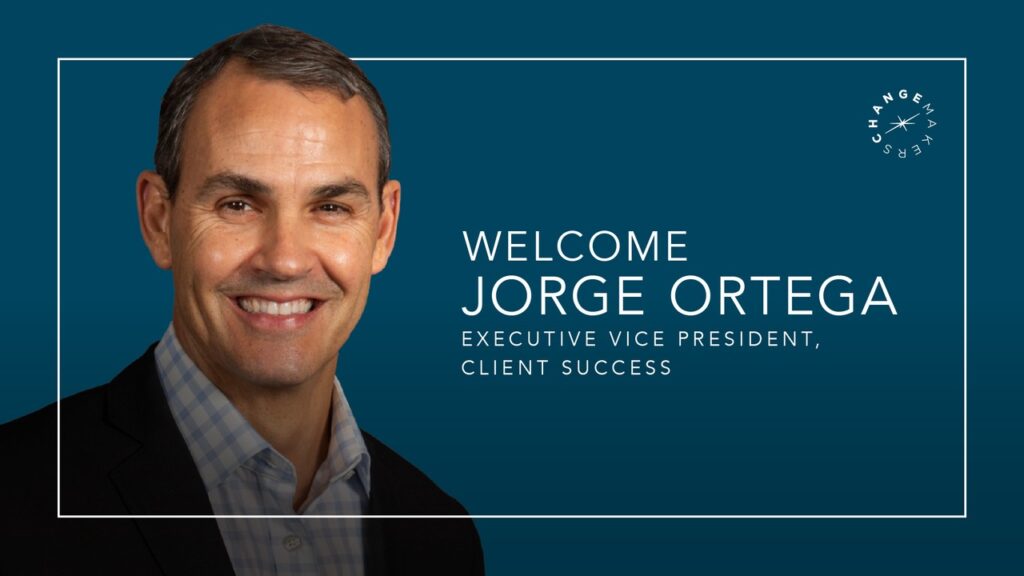
WASHINGTON, D.C. (April 10, 2025) — ChangeMakers, a leading North American communications and marketing firm focused on reputation and social impact, has appointed Jorge Ortega as Executive Vice President, Client Success and a member of the firm’s U.S. leadership team.
A former senior leader at two multinational agencies, Ortega brings decades of experience advising public and private sector clients on CEO communications, leadership development, brand strategy, and crisis response. He will report to Robert Gemmill, President of ChangeMakers, USA.
“Jorge is a major addition to the ChangeMakers team,” Gemmill said. “The trust he has earned from C-suite executives is evident by his deep relationships and broad experience across sectors. His leadership will be key as we grow our U.S. business and deliver the results our partners expect.”
Ortega joins ChangeMakers from CRA | Admired Leadership, where he served as Managing Director. He previously led Edelman’s southwest region and held senior roles at Burson. His career spans reputation strategy, brand communications, and high-stakes crisis response.
“Jorge’s appointment reflects our commitment to building a leadership team with both insight and impact,” said Mario Simon, CEO of ChangeMakers. “His integrity and experience align with our mission to navigate complexity for our clients.”
Ortega joins the ChangeMakers U.S. team, which specializes in helping clients anticipate and navigate complex, high-stakes communication situations. The firm uses its proprietary Reputation Score© AI platform to inform counsel and to measure and predict reputational impact in real time.
“I’m eager to bring my experience advising global clients to help ChangeMakers grow and deliver meaningful results,” Ortega said.
About ChangeMakers
For more than 40 years, ChangeMakers has helped organizations solve complex communications challenges by blending strategy, creativity, and insight. With more than 400 professionals across 10 locations in North America, we partner with clients to build stronger brands, navigate change, and drive meaningful impact. From corporate reputation and brand storytelling to social purpose and executive advisory, ChangeMakers brings together diverse expertise to help clients lead with confidence and clarity.
Reputation Score© helps organizations build resiliency amidst imminent US-Canada tariffs
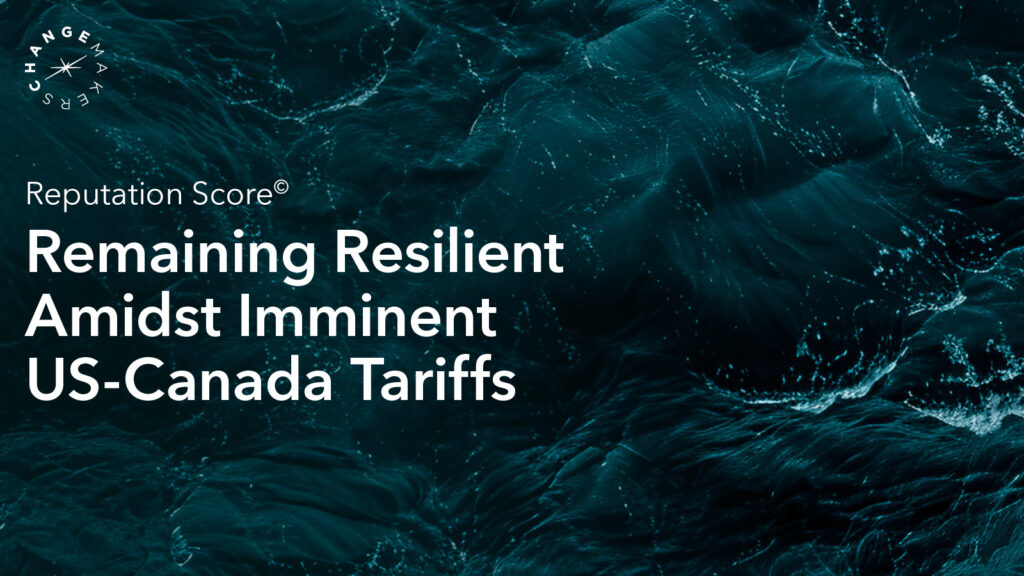
Built on a history of peaceful trade, defense and diplomacy, Canada and the United States have shared one of the world’s most interdependent economic relationships since the early 20th century.
A storied united front, the two countries boast the world’s longest undefended border and exchange nearly two billion dollars in goods and services daily.
In recent weeks, these longstanding bilateral ties have been tested. Unprecedented trade turbulence from the Oval Office, with the threat of tariffs (and temporary reprieves) on Canada and Mexico, have set off a chain of panic across North America.
While it may feel impossible to plan as an organization amidst evolving timelines, we’ve developed communications and crisis-preparedness strategies, rooted in real-time data, to prepare for what could lie ahead in this climate of economic unrest.
To better understand the impact of these tensions and inform recommendations, our Data Intelligence team applied the ChangeMakers’ proprietary Reputation Score©, drawing insights from the fall-out around this conflict. Tracking the fluctuation in trends, habits, audience sentiment, and key developments in consumer behaviour, we examined the reputational outlook of key sectors in the three-week window following the initial tariff declarations.
Here’s what you need to know about the reputational industry shifts, consumer reactions, and key strategies to prepare for what could lay ahead.
Cross-Border Reputation: The Power of Perception
As expected, both countries experienced a notable dip reputationally following the announcement of tariffs.
While Reputation Score allows brands, businesses, and executives to track their health and navigate reputation, we used this tool to understand how the threats of tariffs have impacted cross-border reputation from a geotargeted perspective.
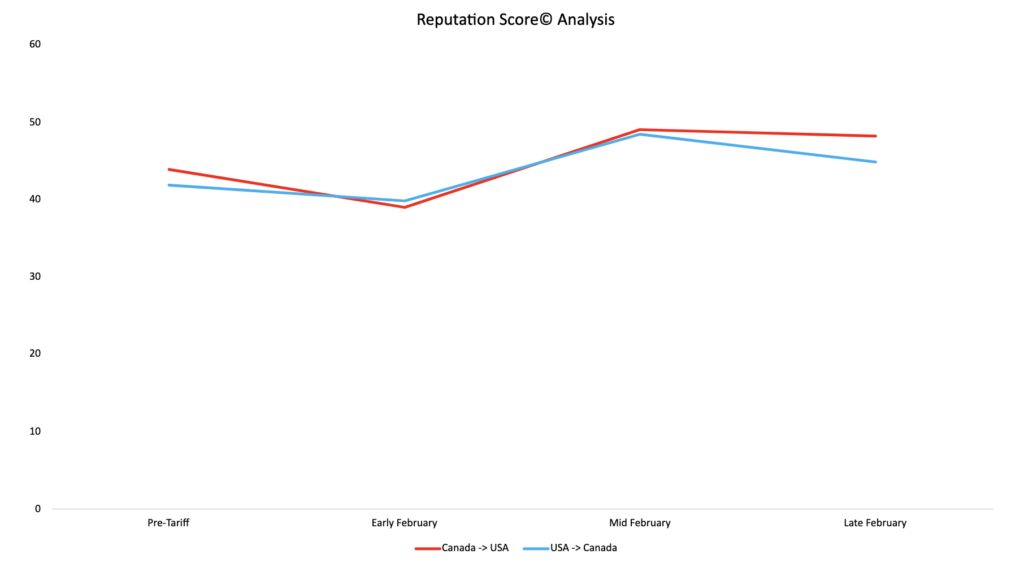
Digital conversations, particularly within pro-Trump communities, have fueled anti-Canada sentiment, while anti-tariff discussions have largely focused on Trump himself rather than offering support for Canada. This demonstrates how trade disputes quickly become emotionally charged, influencing how businesses and brands are perceived.
Industry Impact: Key Sectors in Focus
Despite a brief recovery during the 30-day reprieve, several industries have been hit reputationally as a result of the tariffs discourse. In examining the sector-specific impact, actionable strategies can be implemented by businesses within these spaces to mitigate for further risk.
With heightened consumer anxiety, organizations must be proactive in developing communications and operational strategies that shape their narratives and prepare for potential backlash in an unpredictable policy environment.
Consumer, Lifestyle & Tourism
The initial tariff threat, coupled with uncertainty about its duration, has fuelled a surge in “buy local” rhetoric in Canada. Prime Minister Trudeau’s call for domestic vacations spurred a 150% increase in searches related to Canadian vacations. Similarly, Google search data shows a significant spike in “Made in Canada” queries leading up to the tariffs.

While Canadian consumers may express loyalty to domestic brands, North America’s deeply integrated supply chain makes complete economic independence unrealistic. Businesses should expect continued emotional rhetoric but prepare for practical consumer behavior that blends patriotism with necessity.
Actionable Strategies:
- Establish a clear brand narrative to navigate consumer sentiment.
- Scenario plan for potential tariff-related price shifts.
- Monitor online discourse and adapt marketing strategies accordingly.
Agriculture
Canada and the U.S. have long relied on each other for agricultural trade, but tariffs have sparked discussions about reducing dependence on American imports. February saw a 575% increase in social media mentions of buying Canadian agricultural goods, signalling a shift in public sentiment.

Political rhetoric around Canada’s supply-managed sectors is also naturally intensifying. Businesses should explore new trade partnerships if possible, while strengthening domestic production.
Actionable Strategies:
- Diversify supply chains when possible, to mitigate reliance on U.S. markets.
- Amplify real-world stories about tariff impacts to foster industry advocacy.
- Stay attuned to political developments that could shape future trade policies.
Energy
Canada’s oil and gas sector, responsible for over 60% of U.S. energy imports, faces a 10% tariff as of February 27, threatening price stability and supply chain reliability. For Canadian oil producers, this would represent a nearly US$7-billion hit to their profit. Negative sentiment around Canadian energy exports has spiked, with unfavourable opinions outpacing positive ones by a ratio of 5.5:1.

As tariffs exacerbate uncertainty, the sector may see renewed calls for energy diversification, increased domestic investment, and stronger regulatory support for green energy initiatives.
Actionable Strategies:
- Explore alternative energy markets and partnerships, when possible.
- Identify champions who can advocate for industry stability.
- Align with public sentiment by investing in energy efficiency and sustainability.
Tech & AI
Hard tech goods moving across the border would be directly impacted by prospective tariffs, while AI and digital services remain vulnerable to broader geopolitical tensions. The AI arms race is becoming a critical point of cooperation, with both nations keen on outpacing China’s advancements.
Given the sector’s rapid evolution, businesses must approach AI policy with strategic foresight, ensuring alignment between corporate values and technological adoption.

Actionable Strategies:
- Develop a robust AI policy that integrates security and compliance.
- Stay ahead of government regulations that may impact AI and cloud services.
- Monitor geopolitical trends to anticipate shifts in the digital economy.
Automotive & Transportation
No industry is more vulnerable than North America’s auto sector, where just-in-time supply chains depend on frequent cross-border movement of parts. While tariffs threaten efficiency, public discourse remains surprisingly muted—only 10% of trade-related conversations focus on the auto industry, suggesting that consumers are more concerned with direct consumer goods price increases.

Actionable Strategies:
- Strengthen advocacy efforts to highlight the sector’s economic impact.
- Develop contingency plans for potential supply chain disruptions.
- Align internal teams across legal, government relations, and communications.
Preparing for What’s Next
As the trade pendulum continues to swing and timing remains uncertain, here’s how to stay ahead:
- Anticipate long-term changes: The tariff debate is fluid, but consumer sentiment and economic behavior will have lasting effects. Expect stakeholders to be driven by the emotion of the situation and communicate accordingly.
- Stay agile: The ability to pivot quickly in response to new developments will be crucial for business survival.
- Engage in digital advocacy: The online environment is ripe for brands to take a stance and rally support in a strategic, measured way. Create opportunities for your leaders & advocates to champion industry-wide causes.
Amidst this volatile time, organizations must be proactive, adaptable, and ready to engage with the evolving trade landscape. Through strategic communications, supply chain diversification, and targeted advocacy, now is the time to take decisive action.
About the Authors
Kenny Cameron / Senior Account Manager, Data Intelligence
With over five years of experience in public relations and data analytics, Kenny is an expert in reputation risk management and data-driven communications. Leading ChangeMaker’s Data Intelligence team in Canada, Kenny takes a client-focused approach to social listening and analysis that culminates in actionable takeaways to tackle complex communication challenges.
Rachel Cohen / Senior Account Manager, Reputation Management
With a passion for relationship-building and storytelling, Rachel is a trusted communicator, supporting clients through effective reputation management, crisis preparedness and brand strategy. Joining ChangeMakers with roots in the social-change space, Rachel thoughtfully advises and trains partners from a cross-border perspective on the evolving communications, as well as media landscapes in both countries.



